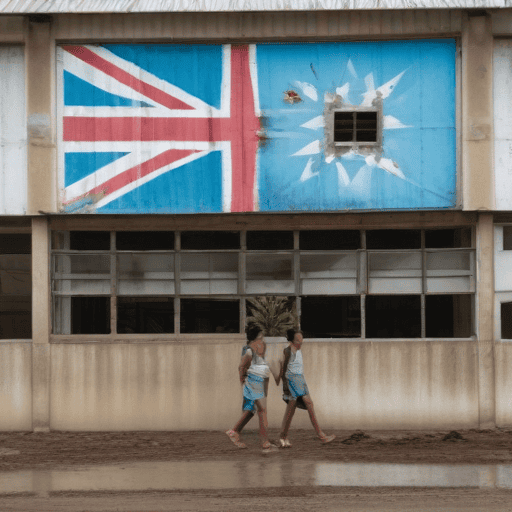Students in Mavana Village on Vanuabalavu Island, Lau, are facing significant challenges in attending school due to the escalating effects of sea level rise and adverse weather conditions. Many children, particularly those attending Adi Maopa Secondary School—the island’s only secondary educational institution—are forced to either remain at home or arrive late, as flooding increasingly impacts the only road linking their village to Lomaloma, the island’s business center.
Milika Vuamuri, the headteacher of Mavana District School, has witnessed firsthand the detrimental consequences of climate change on educational access during her two decades on Vanuabalavu. She explains that when seawater inundates the road, children often find themselves trapped until the conditions improve, resulting in delays for the vehicles that transport them to school. The road, which is becoming narrower and riddled with potholes and debris, increases travel time significantly, turning what is typically a 30-minute journey into almost an hour during bad weather.
The destruction caused by Cyclone Winston in 2016 still lingers, having severely damaged two schools on the island. While Adi Maopa Secondary School has managed to relocate, the former site of Avea District School is now submerged, highlighting the ongoing struggles the community faces. Furthermore, residents of Mavana Village are not only affected in terms of education, but they also find it difficult to participate in market activities due to the flooding, which restricts their ability to sell local produce.
The impacts of climate change extend to the livelihoods of the villagers, particularly the women of Mavana who rely on fishing. Anaseini Temo, a long-time resident, notes that catching fish has become increasingly challenging, forcing them to venture further away from shore as local fish populations shift due to rising sea levels and changing temperatures.
Addressing this pressing issue, Fiji’s Minister for Education has acknowledged the critical condition of the road and is actively seeking assistance from the Fiji Roads Authority to conduct necessary maintenance and improvements. The urgency for climate action was echoed by Deputy Prime Minister Biman Prasad during a recent high-level COP29 meeting, emphasizing the pressing financial needs—estimated between US$1 to US$2 billion annually—to combat climate change effectively.
Although the challenges faced by the residents of Vanuabalavu are profound, their resilience persists as they confront these environmental threats. The community’s call for aid mirrors a broader struggle among Pacific Island nations, as many declare climate change the greatest threat to their survival. By advocating for increased climate financing and global attention, the hope remains that with collective action, this resilient community can work towards ensuring better educational access and sustainable fisheries for future generations.
In summary, the struggles of Mavana Village highlight the urgent need for climate action and support, and they also exemplify the resilience and determination of these communities in the face of adversity.

Leave a comment